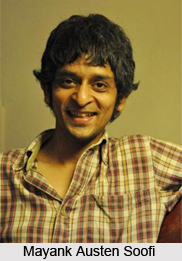 Mayank Austen Soofi is an Indian modern writer and the columnist for many national based newspapers.
Mayank Austen Soofi is an Indian modern writer and the columnist for many national based newspapers.
Early Life of Mayank Austen Soofi
Mayank Austen Soofi was born in Nainital in the mountains of Uttarakhand and moved to Delhi around 2004. He uses `Austen` as his middle name as a tribute to the author Jane Austen, about whom he often blogs. His writings were featured in Volume 4 of "Penguin Book of New Writing from India" published by Penguin.
Works of Mayank Austen Soofi
Mayank Austen Soofi gives stress on the culture, food and literary landscapes of Delhi.
He is best known for his website and blog. In 2011, Mayank Austen Soofi published four alternative guidebooks to the city of Delhi: "The Delhi Walla - Portraits, Delhi Food, Delhi Hangouts and Delhi Monuments". "His latest book Nobody Can Love You More" was published in 2012 under the banner of Penguin Books. This book describes the life of a `kotha`, Hindi for brothel, in Delhi`s red-light district.
Other Works of Mayank Austen Soofi
Mayank Austen Soofi is also well known for his popular columns on Delhi in the city supplement of Hindustan Times titled "The Delhiwalla", Soofi now writes a column, "Delhi`s Belly", for the weekend supplement of the business newspaper Mint.
This article is a stub. You can enrich by adding more information to it. Send your Write Up to content@indianetzone.com



















